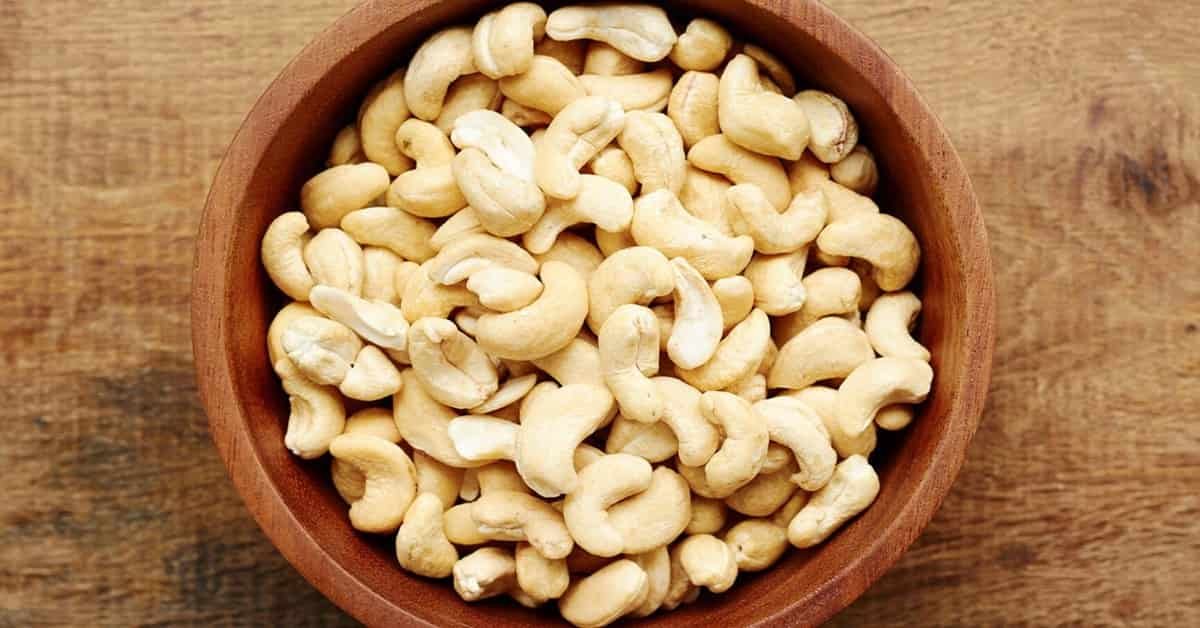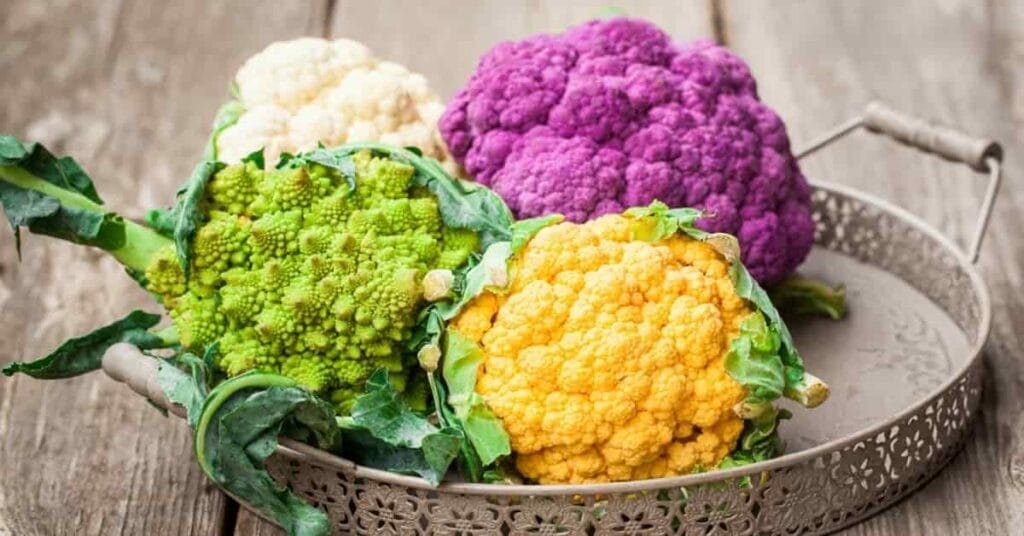Cashews (Anacardium occidentale) are not only a popular snack but also a versatile ingredient used in various dishes around the world. Known for their creamy texture and mild flavor, cashews are rich in nutrients and carry a variety of health benefits. Below, we will explore the nutritional profile of cashews and delve into the numerous advantages they offer for health and well-being.
Nutritional Profile of Cashews (per 100 grams)
Here’s a comprehensive breakdown of the nutritional content of raw cashews:
- Calories: 553
- Water: 5%
Macronutrients:
- Carbohydrates: 30.19 g
- Sugars: 5.22 g
- Dietary Fiber: 3.3 g
- Protein: 18.22 g
- Fat: 43.85 g
- Saturated Fat: 7.78 g
- Monounsaturated Fat: 23.12 g
- Polyunsaturated Fat: 7.8 g
Vitamins:
- Vitamin E: 0.9 mg (about 6% of the Daily Value)
- Vitamin K: 34.1 µg (about 28% of the Daily Value)
- Vitamin B6: 0.42 mg (about 21% of the Daily Value)
- Riboflavin (B2): 0.06 mg (about 4% of the Daily Value)
Minerals:
- Copper: 2.22 mg (about 110% of the Daily Value)
- Magnesium: 292 mg (about 73% of the Daily Value)
- Phosphorus: 593 mg (about 84% of the Daily Value)
- Zinc: 5.78 mg (about 52% of the Daily Value)
- Iron: 6.68 mg (about 37% of the Daily Value)
- Potassium: 660 mg (about 14% of the Daily Value)
- Calcium: 37 mg (about 4% of the Daily Value)
Health Benefits of Cashews
- Nutrient-Dense Snack:
- Cashews are a nutrient-rich food, loaded with healthy fats, protein, vitamins, and minerals. Their energy-dense nature makes them an excellent choice for a quick snack to refuel the body.
- Heart Health:
- The monounsaturated and polyunsaturated fats found in cashews are beneficial for heart health. These healthy fats can help lower bad cholesterol levels (LDL) while increasing good cholesterol levels (HDL), reducing the risk of heart disease.
- Supports Bone Health:
- Cashews are a good source of minerals like magnesium, phosphorus, and calcium—essential nutrients for maintaining strong bones. Adequate intake of these minerals can help prevent conditions like osteoporosis.
- Boosts Immune Function:
- The high levels of zinc in cashews play a critical role in immune function. Zinc is necessary for the development and function of immune cells, helping the body fight off infections and illnesses.
- Provides Antioxidants:
- Cashews contain antioxidants, including vitamin E and other phytonutrients, which can help neutralize harmful free radicals in the body. This may reduce oxidative stress and lower the risk of chronic diseases.
- Aids in Weight Management:
- Despite being calorie-dense, research shows that nuts like cashews can help with weight management. The combination of protein, fiber, and healthy fats provides long-lasting satiety, which can help control hunger and reduce snacking on less healthy options.
- Improves Heart Health:
- The healthy fats in cashews also support regulating blood pressure and blood flow, contributing to overall cardiovascular health. Consuming nuts regularly has been linked to lower rates of heart disease.
- Support for Eye Health:
- Cashews contain antioxidants like zeaxanthin and lutein, which are known to promote eye health. These antioxidants help filter harmful blue light and protect the retina, potentially lowering the risk of age-related macular degeneration.
- Regulates Blood Sugar:
- Cashews have a low glycemic index, meaning they have a minimal effect on blood sugar levels. Their healthy fats, protein, and fiber content can aid in managing blood sugar levels, making them a suitable snack for individuals with diabetes.
- Promotes Healthy Skin:
- The antioxidants and healthy fats in cashews contribute to skin health by providing nourishment and moisture. Additionally, vitamin E helps protect the skin from oxidative damage, promoting a youthful appearance.
- Improves Mood and Brain Function:
- Cashews are a good source of magnesium, which supports brain health and mood regulation. Adequate magnesium levels are associated with reduced anxiety and depression, helping to improve overall mental well-being.
- Culinary Versatility:
- Cashews can be enjoyed in various ways—raw, roasted, as nut butter, or ground into flour. They can also be added to salads, stir-fries, granola, and desserts, enhancing the flavor and nutrition of your meals.
FAQs about Cashews
Here are some frequently asked questions (FAQs) about cashews:
1. What are cashews?
Cashews are seeds from the cashew tree (Anacardium occidentale). They have a distinctive kidney shape and are often consumed as a snack or used in various culinary applications.
2. What are the health benefits of cashews?
Cashews offer several health benefits, including:
- Nutrient-Dense: High in essential nutrients, including magnesium, copper, zinc, and vitamins E and K.
- Heart Health: Contain healthy fats that may help reduce the risk of heart disease by improving cholesterol levels.
- Antioxidant Properties: Rich in antioxidants that help protect against cell damage.
- Bone Health: Good source of magnesium, which is important for bone health.
3. How are cashews typically eaten or used?
Cashews can be consumed in various forms:
- Raw or Roasted: Eaten as a snack, often salted or flavored.
- Cashew Butter: Ground into a creamy spread.
- Cooking Ingredient: Used in stir-fries, salads, or as a topping for dishes.
- Cashew Milk: A non-dairy milk alternative made by blending cashews with water.
- Culinary Paste: Ground into paste for sauces, especially in Indian cuisine.
4. Can cashews cause allergies?
Yes, cashews can cause allergic reactions in some individuals. Symptoms may range from mild (such as hives or itching) to severe (such as anaphylaxis). Those with nut allergies should exercise caution and consult a healthcare professional.
5. How should cashews be stored?
To keep cashews fresh, store them in an airtight container in a cool, dry place. For longer shelf life, consider refrigerating or freezing them, especially if they are raw.
6. Are there different types of cashews?
Yes, cashews come in different varieties based on processing methods:
- Raw Cashews: Not roasted, retaining a softer texture.
- Roasted Cashews: Cooked at high temperatures, available salted or unsalted.
- Raw Cashew Pieces: Broken or smaller bits of cashews ideal for topping or baking.
7. How many cashews should I eat per day?
A common serving size is about 1 ounce (approximately 18 cashews). This portion provides ample nutrients without excessive calorie intake. Individual dietary needs may vary, so moderation is key.
8. Are cashews high in calories?
Yes, cashews are calorie-dense due to their fat content. However, the fats are mainly healthy monounsaturated fats, which can contribute positively to your diet when consumed in moderation.
9. Can cashews be part of a weight loss diet?
Cashews can be included in a weight loss diet if consumed in moderation. Their healthy fats and protein content can help you feel satisfied, but portion control is important to avoid excess caloric intake.
10. In what cuisines are cashews commonly used?
Cashews are popular in various cuisines, including:
- Indian Cuisine: Often used in curries, sweets, and as a garnish.
- Chinese Cuisine: Commonly found in stir-fried dishes like cashew chicken.
- Thai Cuisine: Used in stir-fries and salads for added crunch and flavor.
Conclusion
Cashews are not only delicious but also a highly nutritious and health-promoting food. Their rich content of healthy fats, protein, vitamins, and minerals contributes to numerous health benefits, including heart health, bone strength, immune support, and weight management.
Incorporating cashews into your diet can be simple and enjoyable, whether snacking on them raw, adding them to recipes, or making nut-based dairy alternatives.


